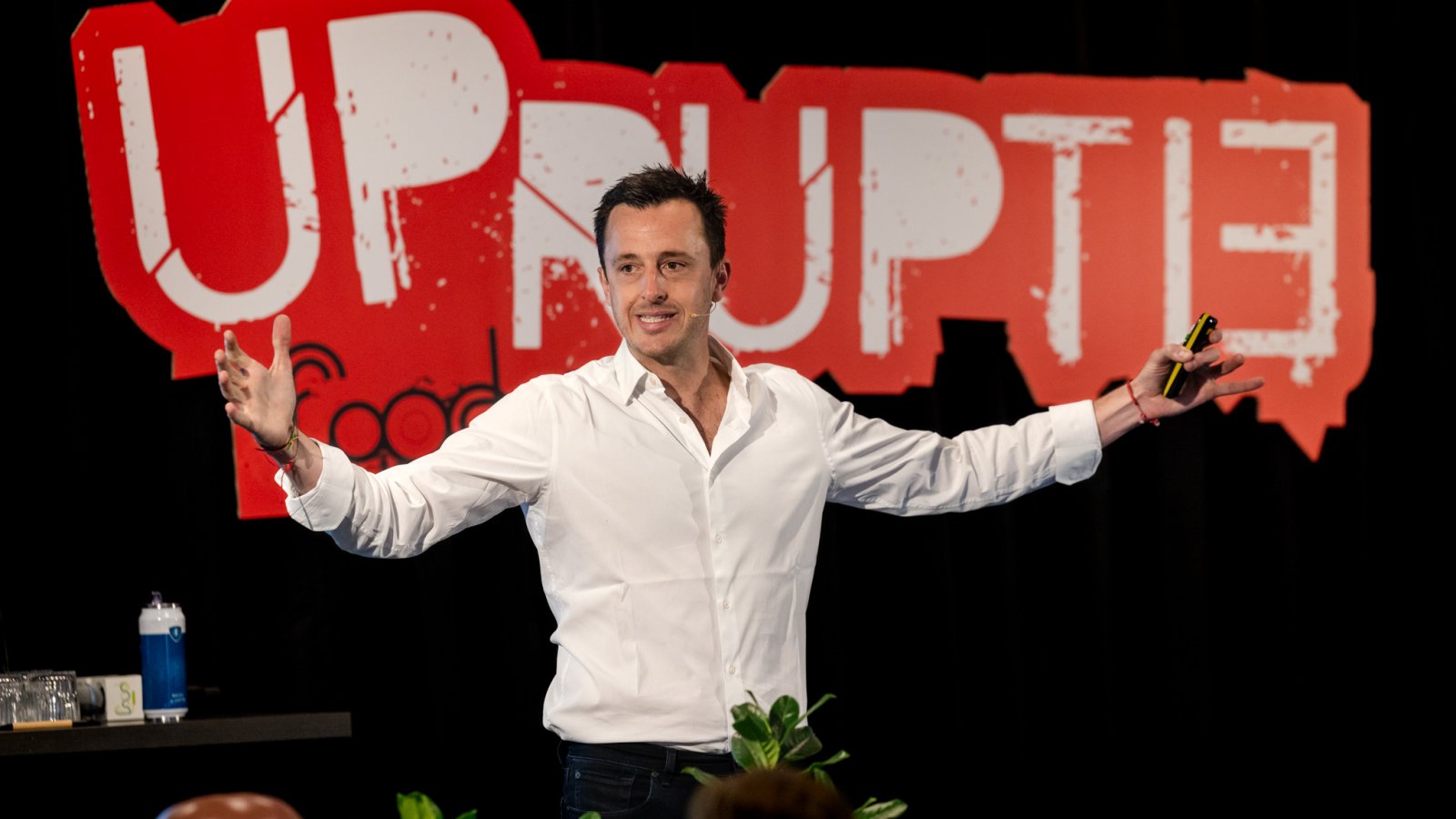Greg Bernarda is a renowned expert in innovation, strategy, and leadership. He worked for the World Economic Forum and is a co-author of the book Value Proposition Design. Bernarda is also the creator of the term 'upruption' and the philosophy behind it. This idea has been nominated for the Thinkers50 Strategy Award (2023).
What is upruption?
“Upruption is a derivative of the word disruption. Disruption is useful because often things are stuck in outdated structures that no longer work. When you change that, new energy is released, and new possibilities arise. But disruption is not always 100% positive.”
“Upruption is an ideal. Many people no longer want to operate under a logic that disregards both our individual and collective well-being. There is a natural drive for a different way of innovating and creating value. Moving towards a new potential. Creating a better version of the things you're working on — one that elevates people and systems to a higher level of functioning and allows for more value. That is upruption.”
How can leaders contribute to upruption?
“Therefore, leaders need to think more like mayors than like CEOs. A CEO takes care of their own company, while mayors care for their entire environment. They build roads, schools, and communication networks. They ensure that all players in the village participate, striving for harmony and efficiency, and maintaining good relationships with other villages. In other words, they take responsibility for a larger field of value creation, where more is possible and where every individual is taken into account.”
What characterizes upruptive leaders?
“Leadership, to me, is the ability to sense the needs of our time and translate them into a higher purpose—regardless of whether that is in healthcare, food, or education. Every job demands a broad connection with your environment. These forms of stretching require courage and the skill to deploy your full capabilities.”
“I believe that we should work more as artists. Artists work with a broader 'radar.' Just like good entrepreneurs or top athletes, they use their intuition and emotional intelligence. This gives them access to a broader palette of data, allowing them to act with more insight, subtlety, and precision." Bernarda’s advice to (food) professionals is: think like an artist. "Collaborate with artists or with others who are not in your industry. Seek less obvious partners and collaborations. You’ll be surprised how many 'out of the box' ideas it generates!”
.jpg)
Can established companies 'uprupt' themselves? Or is it mainly for newcomers?
“If companies can disrupt themselves, they can also uprupt themselves. The company Intel is a good example of one that underwent a huge upruption in the 1990s. For years, Intel was 'just' a manufacturer of microprocessors but later grew to become the architect of the entire computer industry. Time and again, Intel launched new applications for computers, creating enormous added value for both end-users and the computer industry as a whole.”
"Ask yourself: what would upruption look like within my company?"
Can artificial intelligence (AI) accelerate upruption?
“AI is a huge theme. I don't want to reduce it to simple statements. I believe that AI is an accelerator and can speed things up. But the question is: what do you want to accelerate? What do you want to use it for? The pitfall is to blind ourselves to technology without considering the human or societal context. Every powerful technology, including AI, must be guided by vision. Technology is never an end in itself but always a means of creating new value. AI can fulfill that role, as long as we are aware of where and how we deploy it. Otherwise, we might have countless new gadgets… but how many of them truly align with our deepest desires and values?”
What are the first practical steps for leaders to apply upruption in their strategy?
“The first step is to shift your focus from a business mission to a societal goal. The second step is to execute that goal. That may sound simple, but the most impactful organizations often work from a clear, honest simplicity in their purpose. This creates coherence in the system and direction towards a new possibility. It doesn’t have to be grand, but it must be sincere. So, give it a try. Ask yourself: what would upruption look like within my company?”
.jpg-28x28.jpg) Written by
Written by 
.jpg-300x300.jpg)
.jpg-50x50.jpg)


























